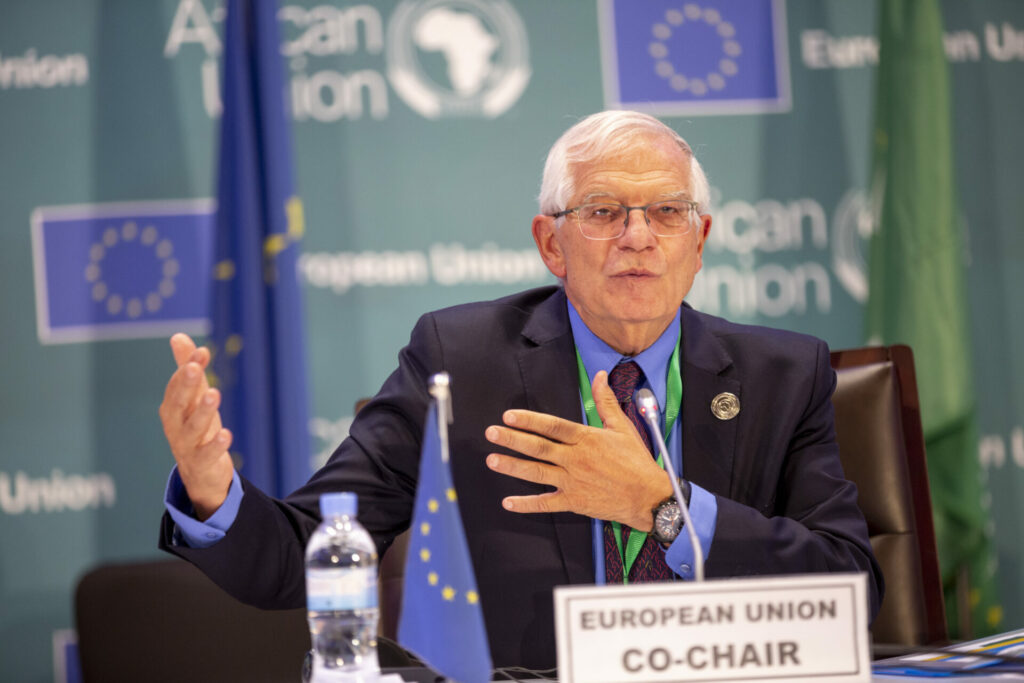Russia's war on Ukraine and its blocking of both Ukrainian grain exports and restricting its own exports threaten to create a global wave of hunger, EU Foreign Affairs Chief Josep Borrell warned in a recent statement.
After years of the figure declining, the World Food Program (WFP) estimates that the number of undernourished people has risen from 132 million people before the COVID-19 pandemic to 276 million in early 2022 and 323 million, partly as a result of the pandemic and the ongoing war in Ukraine, one of the most important “breadbaskets” of the planet.
"The unjustified and unprovoked war of aggression against Ukraine puts the world in danger of a famine affecting hundreds of millions of people," Borrell wrote on Saturday. "We must urgently enable Ukraine to export its grains through the Black Sea."
Importantly, EU sanctions do not prohibit Russia from exporting any agricultural goods, from paying for such exports, or from buying or exporting seeds, “provided that sanctioned individuals or entities are not involved."
Borrell stressed that, instead, it is an intentional political move by Russia to make hunger a byproduct of the war, as well as a bargaining chip.
He stated that aside from blocking Ukraine’s ports, and preventing the export of millions of tons of grain to global markets, the Russian army is also shelling, mining and occupying arable land in the war-torn country, as well as attacking farm equipment, warehouses, markets, roads, and bridges.
"Russia turned the Black Sea into a war zone, blocking shipments of grain and fertilizer from Ukraine but also affecting Russian merchant shipping."
Related News
- Ukraine loses 25% of arable land due to Russian invasion
- Ukraine grain crisis: The West blames Russia for food insecurity
- War in Ukraine continues to impact Belgian economy
Borrell stressed that Russia is also applying "quotas and taxes on its grain exports" to "weaponise" these exports and use them as a tool for blackmail against anyone that opposes its aggression.
He added that the EU is working closely with the UN on this issue and that he hopes that a solution can be found in the coming days. "Not doing this threatens to cause a global food catastrophe.”
Stopping war is solution
According to the UN Global Crisis Response Group cited by Borrell, 1.2 billion people — one-sixth of the world’s population — are living in so-called "perfect-storm" countries that are severely exposed to the combination of rising food prices, and rising energy prices and tightening financial conditions.
Meanwhile, food prices have never been as high as they are today, resulting in households that would usually not rely on foodbank now also flocking to them for help.
Borrell concluded that to avoid a global food calamity, the top priority remains to "stop the war and get Russian troops out of Ukraine."

